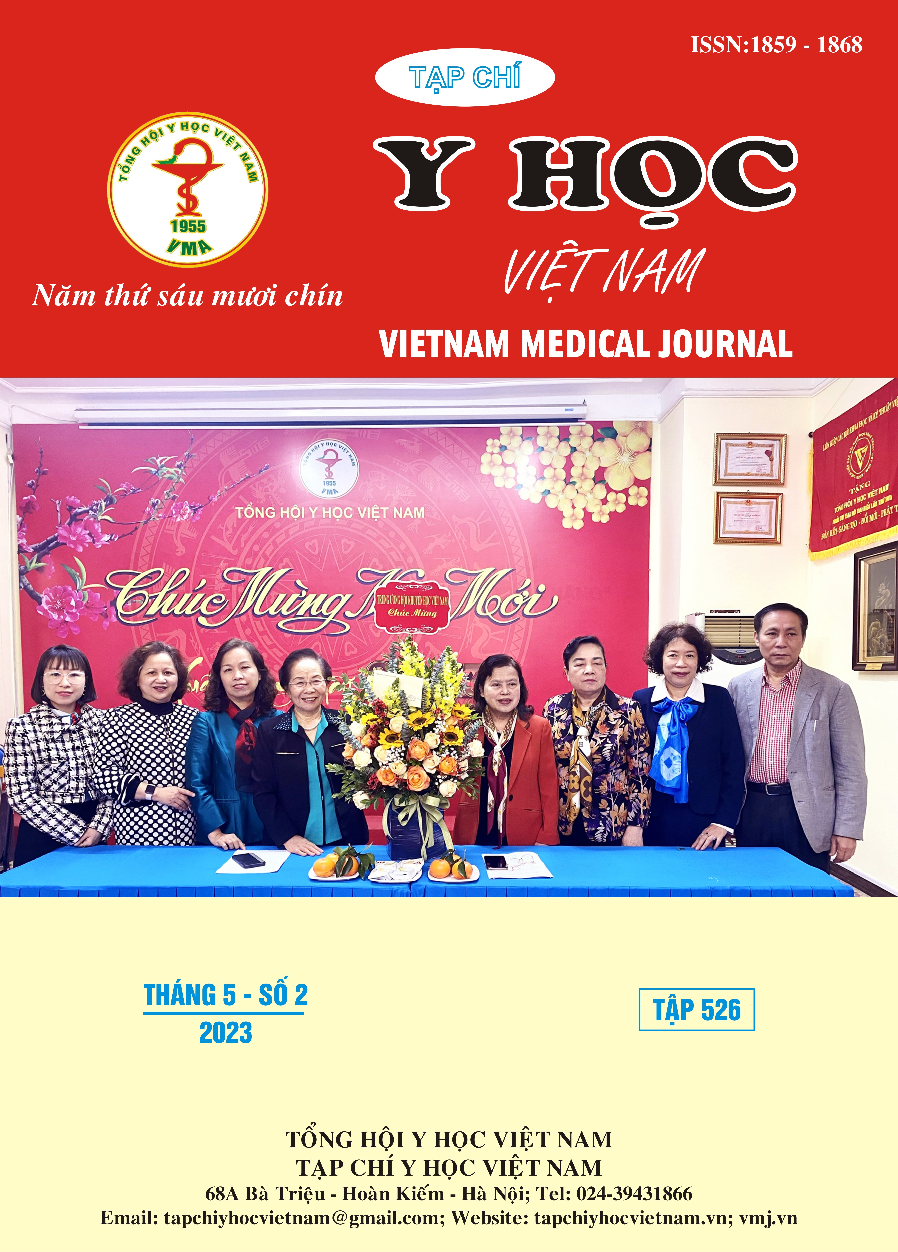NUTRITIONAL PRACTICE AND GESTATIONAL WEIGHT GAIN OF PREGNANT WOMEN IN HANOI IN 2020
Main Article Content
Abstract
Research objectives: To find out nutritional practices and pregnancy weight gain of pregnant women in Hanoi in 2020. Study design: a cross-sectional descriptive study. Results: The highest percentage of women participating in the study with BMI in the normal range before pregnancy was 80.2%. Women with BMI < 18.5 and BMI ≥ 25 accounted for 15.8% and 4%, respectively. 97.7% of women participating in the study of dietary supplements during pregnancy. The percentage of women who increased their consumption of meat, fish, eggs and beans in the 3 stages of pregnancy accounted for the highest rate, corresponding to 93.7%; 95.7% and 96.4%. The rate of weight gain at the recommended level of the IOM 2009 of underweight, normal weight and overweight/obese women was 22.9%, respectively; 40.3% and 50%. Women with BMI < 18.5 before pregnancy had a weight gain below the recommended level, accounting for 66.7%. The group of women with BMI ≥ 25 before pregnancy had the highest rate of weight gain above the recommended level, accounting for 41.7%. Conclusion: The study shows nutrition practice and pregnancy weight gain of Hanoi women during pregnancy in 2020.
Article Details
Keywords
Nutrition practice, pregnancy weight gain, pregnant women, Hanoi
References
2. Goldstein RF, Abell SK, Ranasinha S, Misso M, Boyle JA, Black MH, et al (2017), "Association of Gestational Weight Gain with Maternal and Infant Outcomes: a systematic review and meta-analysis", JAMA, 2017;317(21):2207–2225.
3. Martínez-Hortelano JA, Cavero-Redondo I, Álvarez-Bueno C, Garrido-Miguel M, Soriano-Cano A, Martínez-Vizcaíno V (2020), Monitoring gestational weight gain and prepregnancy BMI using the 2009 IOM guidelines in the global population: a systematic review and meta-analysis", BMC Pregnancy Childbirth, 2020 Oct 27;20(1):649.
4. Voerman E, Santos S, Inskip H, et al (2019), "LifeCycle Project-Maternal Obesity and Childhood Outcomes Study Group. Association of gestational weight gain with adverse maternal and infant outcomes", JAMA, 2019;321(17):1702-1715.
5. Popa AD, Popescu RM, Botnariu GE (2014), "Adequate weight gain in pregnancy: an analysis of its determinants in a cross-sectional study", Srp Arh Celok Lek, 2014; 142(11-12): 695.
6. Yu Z, Han S, Zhu J, Sun X, Ji C, Guo X (2013), "Pre-pregnancy body mass index in relation to infant birth weight and offspring overweight/obesity: a systematic review and meta-analysis", PLoS One, 2013 Apr 16;8(4):e61627.
7. Cresswell JA, C.O., De Silva MJ, Filippi V (2012), "Effect of maternal obesity on neonatal death in sub-Saharan Africa: multivariable analysis of 27 national datasets", Lancet 380: 1325–1330.
8. National Academy of Sciences (1990), "Nutrition during pregnancy: part I, weight gain: part II, nutrient supplements", Natl Academy Pr, 1990;10. ISBN: 0-309-55558-2.


